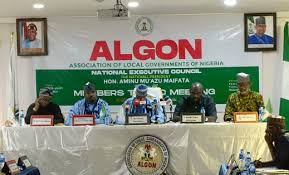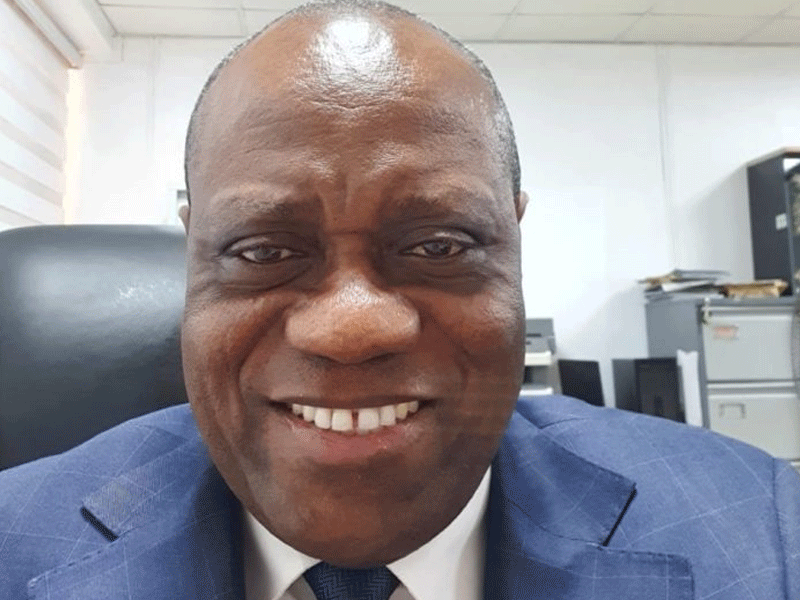Empowering Local Governance: ALGON Advocates for Bottom-up Approach

Key points:
- ALGON pushes for LGAs to have more control over policy-making.
- LG face many challenges, including interference, lack of resources, and corruption.
- ALGON recommends transparency, accountability, and citizen involvement to improve local governance.
- Yiaga Africa’s leader says local governments need stable leadership and stronger state institutions.
- A former minister warns that local governments may not be ready for autonomy due to capacity issues.
By Emmanuel Kwada
The Association of Local Governments of Nigeria (ALGON) has advocated for a bottom-up approach to policy-making for local governments, stressing its importance for effective governance. This follows the Supreme Court’s July 11, 2024, ruling granting financial autonomy to local governments, a significant development, but one that comes with unique challenges that need to be addressed for this development to manifest at the local government level.
Challenges Facing Local Government Autonomy
1. State Governor’s Influence: The state governor’s influence in local government elections undermines the autonomy of local governments. The State Independent Electoral Commissions lack both administrative and financial autonomy, making them vulnerable to manipulation.
2. Lack of Autonomy: The lack of financial and administrative autonomy for State Independent Electoral Commissions (SIECs) has led to poorly conducted local government polls. Granting autonomy to SIECs could improve the electoral process.
3. Political Interference: State and federal governments often interfere in local government affairs, undermining their autonomy. This interference can lead to undue influence and manipulation of local government decisions.
4. Lack of Capacity: Local governments may not have the necessary skills and expertise to manage their affairs effectively. This capacity gap can hinder the delivery of essential services and development projects.
5. Corruption: Granting autonomy to local governments may lead to increased corruption at the local level. Effective measures must be put in place to prevent and address corruption.
6. Inadequate Funding: Local governments may not have sufficient funds to carry out their responsibilities. This funding gap can hinder development projects and service delivery.
7. Ethnic and Religious Conflicts: Autonomy may exacerbate ethnic and religious tensions, leading to conflicts and instability. Efforts must be made to address these tensions and promote inclusivity.
8. Inadequate Infrastructure: Local governments may not have the necessary infrastructure to support development. Investing in infrastructure is crucial for economic growth and development.
9. Dependence on Federal Allocations: Local governments may still rely heavily on federal allocations, rather than generating their own revenue. This dependence can hinder autonomy and self-sufficiency.
10. Potential for Abuse of Power: Autonomy may lead to abuse of power by local government officials. Effective accountability mechanisms must be put in place to prevent and address abuse of power.
ALGON’s Recommendations
At a national dialogue organized by Agora Policy in Abuja on Monday, August 5, 2024, ALGON official Nuhu Salawu emphasized the need for:
– Proper bookkeeping and accounting systems to ensure transparency and accountability
– Decentralizing power to allow for more effective governance and decision-making
– Accountability mechanisms to prevent and address corruption and abuse of power
– Citizens’ participation and service to the nation to ensure inclusivity and effective governance
In his words, ALGON official Nuhu Salawu, representing National President Aminu Maifata, said,
“The Supreme Court’s judgment has come, and we must find a way to address its impact. We want to provide solutions, not create problems.” Salawu emphasized the need for local governments to have proper bookkeeping and accounting systems, manual audits, and domestic reports.
“They need to be independent and supported by financial institutions,” he added.
“Decentralization of power works everywhere, and we must bring international standards to local government affairs. We need citizens’ participation and service to the nation. Independent candidacy can help, and we need experienced, skilled people to deliver services, not just seek power and money,” he said.
Lack of tenure for local governments and councils is a major issue that needs to be addressed
He also emphasized the need to define qualifications and experiences for local government executives.
“Governments have powers and influence, but sometimes unqualified people are in charge. We must emphasize the importance of qualified individuals managing local resources,” he said.
“Community policing, energy production, and sustainable energy are related issues. We need to spread awareness and attract investors for local energy generation,” he said.
Yiaga Africa’s Contribution
Yiaga Africa’s Executive Director, Samson Itodo, stated that the lack of tenure for local governments and councils is a major issue that needs to be addressed. He noted that strengthening state government institutions is crucial for effective governance and development.

Credit: Vanguard
“Governments can leverage the gap in the law to dissolve local councils at will,” he noted. To address this, there is a debate on whether INEC should conduct local government elections. However, strengthening state government institutions is seen as crucial.
“Strengthen the system, and you will even conduct better elections than INEC,” he added.
Former Minister of Youths and Sports Mallam Bolaji Abdullahi expressed concerns over the Supreme Court’s ruling on local government autonomy, stating that it may have placed the most important level of education in the hands of the weakest tier of government.
“Lack of competence is a bigger problem than preventing theft,” Abdullahi said, highlighting the need to address capacity challenges at the local government level. He emphasised the importance of improving capacity, saying, “We must consider how to improve capacity at the local level.”
Read Also: Hunger: How Tinubu’s Efforts To Stop August 1 Protests Failed
The Insight Report
Nigeria Coverage



